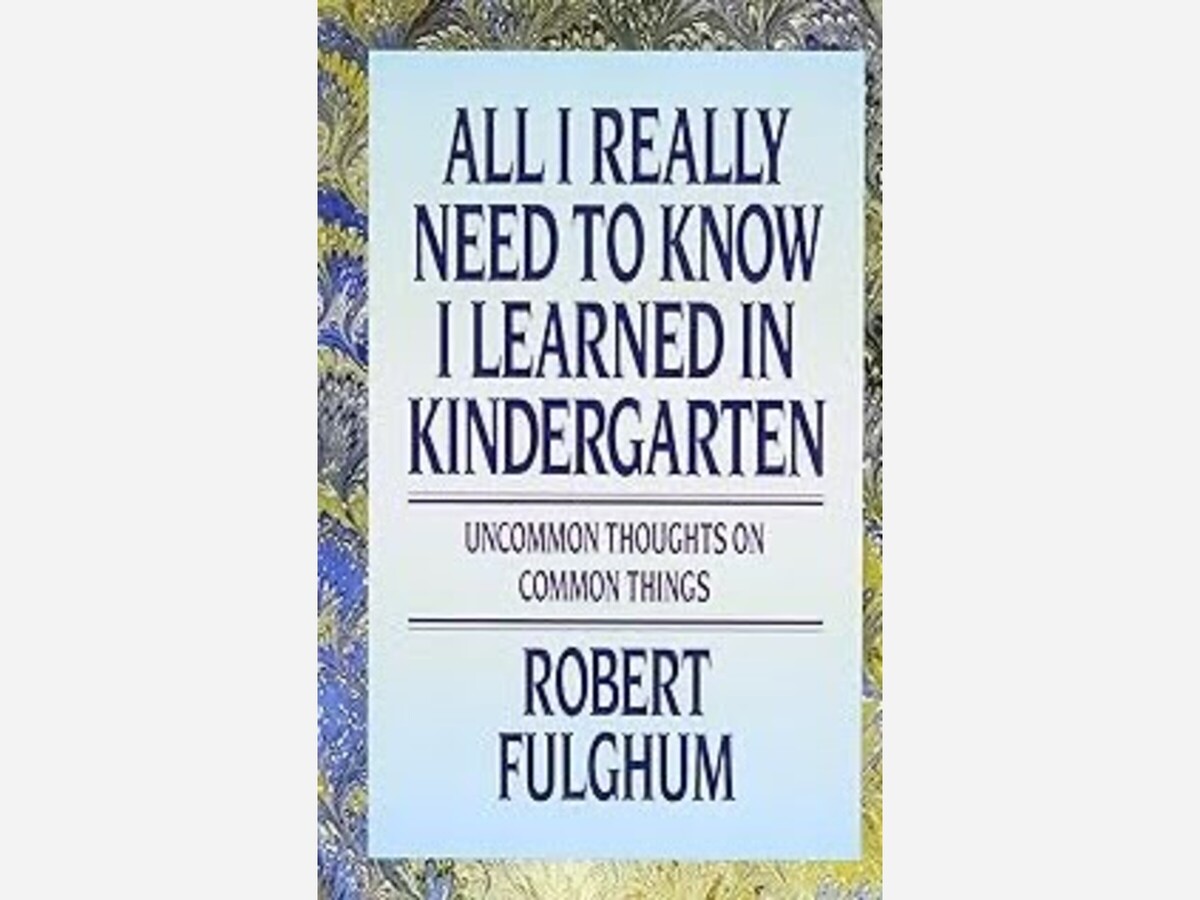Image

Near the end of 1989, most of a year after my mother died, my father was out Christmas shopping for gifts for my sister and me. This was something of a new experience for him, since he and my mother had always gone Christmas shopping together to buy gifts for us kids. My mother had the list of what to get, and Dad mostly just forked over the money and carried the packages. But now he was all by himself. There was no one with a list and no one to make suggestions. Considering what he might want to get for me, he thought to himself, “Well, Craig likes to read a lot. Maybe I should give him a book.” So he located a well-stocked book store in the mall and walked in.
Along one wall just inside the entrance was an array of shelves featuring new releases and best-sellers. Dad looked them over carefully and finally pulled one off the shelf to take a closer look. It was Robert Fulghum’s All I Really Need to Know I Learned in Kindergarten. Fulghum was a retired Methodist minster who had written a best-selling self-help book with all sorts of simple, homey advice on how to live and be happy. I say “simple” advice because, as the title suggests, it consisted of the kind of things we’ve been told to do or not do since we were children. Things like sharing your toys, putting them away when you’re finished, waiting your turn, and telling the truth. When these are placed into an adult context, it becomes apparent that most of us still need to be told to do or not to do them, at least now and then.
Dad, however, was puzzled. He didn’t purchase the book to give me as a Christmas gift; but sometime after Christmas had passed, he did tell me about perusing it in the book store. “I looked through that,” he recalled, “and read a little bit here and there, and all I could think was, ‘Do people really have to read a book to know this?’” I didn’t know what to say except, “Yeah, Dad, I guess some people do.”
And that was my Dad. Virtually all of these things were so much an inherent part of who he was that reading a book about them seemed just a little absurd. And they’re probably enough of a part of who each one of us is that we don’t necessarily need to read a book to know them, either. But we may need to read one to be reminded of them now and then because the demands and expectations that confront the average adult in modern life are so often contrary to the most basic moral and ethical teachings that we learned in kindergarten or from any other source whose responsibilities may include the moral instruction of children.
Some people may scoff and say, “Ha! These things are fine for little kids, but this is the real world. It’s full of grown-ups. If you operate like a kindergarten kid, you’ll just get walked all over and eaten alive!” But if the people who would walk all over you and eat you alive were operating more like kindergarten kids, they wouldn’t be doing that. They’d be treating you no differently from the way they would want you to treat them. It’s only when we have some people who have forgotten (or chosen to ignore) those simple lessons that we have other people getting walked on and eaten alive.
But Fulghum’s advice, as dated as it may be, has a lot to offer. If we examine it closely, we should find that much of it suggests a re-ordering of priorities as they have come to exist in the mind of many contemporary adults. But when we’re old and look back over our lives as we lived them, what will we remember most fondly? What will give us the most pride and satisfaction to recall? What will stand out as most exemplary of who we were?
Most likely it won’t be all the additional hours we spent at work to earn more money, the pricey new cars we purchased, or the scramble to acquire the latest technology; and it’s not likely to be the times we succeeded in getting the best of someone in a slick business deal, cheated on our income taxes and got away with it, or lied to our spouse about what we were really up to when we “had to work late at the office.” It may be worth asking ourselves seriously what wewould want it to be—and then start living the remainder our lives accordingly.
Now the Christmas shopping season is once again upon us. And, although Fulghum’s book is little more than a memory to those who read it or read about it, its lessons are more important than ever in the world that surrounds us today. And there’s no more appropriate time than the present to consider how much those lessons echo those in the lyrics of many of our favorite carols: peace on Earth, good will toward men [and women]. Merry Christmas.
Craig H. Bennett, author of Nights on the Mountain and More Things in Heaven and Earth, available at amazon.com, barnesandnoble.com, and the Firefly Bookstore in Kutztown, PA